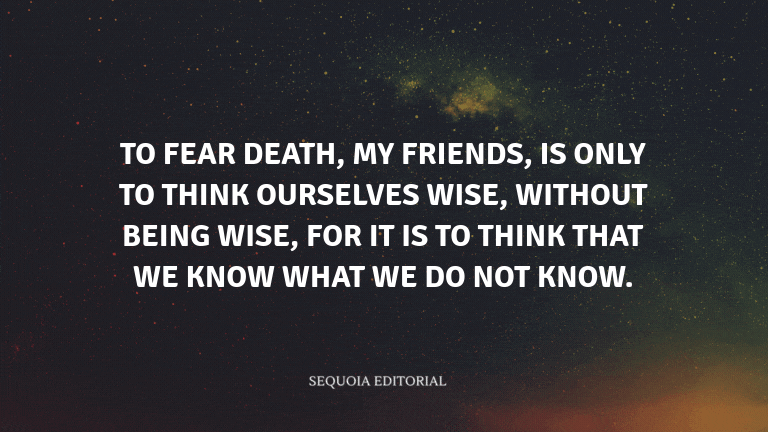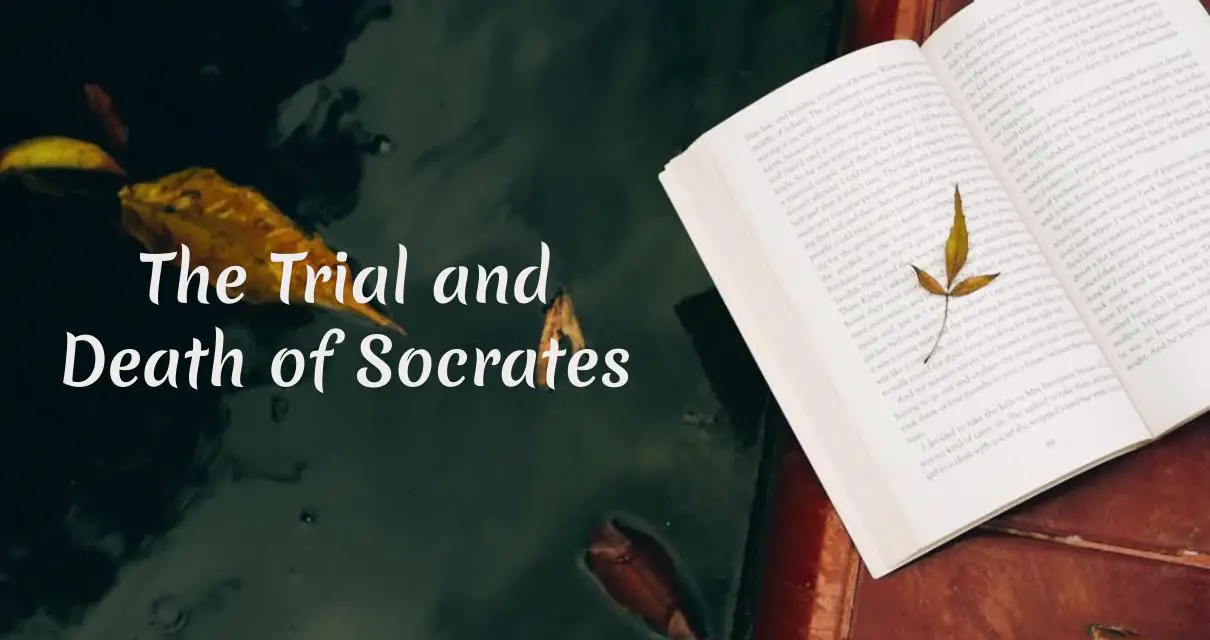The Trial and Death of Socrates is about the final days of the philosopher Socrates, who is put on trial for corrupting the youth and impiety. The trial raises profound philosophical questions about the nature of justice, truth, and the foundations of a just society.
Table of Content
The Trial And Death Of Socrates Book Summary
Socrates, a philosopher in ancient Athens, is accused of corrupting the youth and impiety. He boldly defends himself in the "Apology," a speech that becomes a classic statement of the philosophy of life and death.
Condemned, he awaits his execution in prison. His friends gather, and Socrates engages them in his final conversation, the "Phaedo," where they discuss the nature of the soul, its immortality, and the afterlife.
As the day progresses, Socrates prepares for his death with remarkable calmness. He drinks the hemlock and, despite the sorrow of his friends, assures them that death is not to be feared.
His conviction and death serve as a testament to his beliefs, leaving a legacy that would profoundly influence Western philosophy and the concept of a just life.
The Trial And Death Of Socrates Quotes
- The unexamined life is not worth living.

- I cannot teach anybody anything. I can only make them think.

- To fear death, my friends, is only to think ourselves wise, without being wise, for it is to think that we know what we do not know.

The Trial And Death Of Socrates Ending Explained
At the end of The Trial and Death of Socrates, after his philosophical discourse with his friends, Socrates drinks the hemlock as prescribed by the court.
His followers are grief-stricken, but Socrates, true to his teachings, faces his death with equanimity, reiterating his belief in the immortality of the soul.
The book concludes with the impact of his death on his followers, who are left to grapple with the loss of their mentor and the timeless wisdom he imparted.
Characters in book The Trial And Death Of Socrates
- Socrates: A renowned philosopher who is on trial for his teachings and beliefs.
- Meletus: The primary accuser of Socrates during his trial, accusing him of corrupting the youth.
- Anytus: Another accuser of Socrates, accusing him of impiety and disrespect for the gods.
- Plato: Socrates' student and the author of the book, who is present during the trial and deeply influenced by Socrates' philosophy.
- Crito: A close friend of Socrates, who visits him in prison and has a philosophical dialogue with him about escaping.
- Apology: The speech given by Socrates in his own defense during the trial.
- Phaedo: A dialogue between Socrates and his friends, discussing the nature of the soul and arguments for its immortality.
Key Lessons
- Question Everything: It is important to continually question and examine one's beliefs and the world around them.
- Value of Wisdom: True wisdom lies in the recognition of one's own ignorance and the relentless pursuit of knowledge and understanding.
- Importance of Integrity: Upholding one's principles and living a life of integrity is more valuable than succumbing to external pressures.
My Personal Opinion
Is The Trial and Death of Socrates worth reading? Absolutely! I found it to be a profoundly thought-provoking piece. The way Socrates confronts his trial and mortality with intellectual rigor and moral steadfastness is inspiring.
I was captivated by Socrates' relentless pursuit of truth and his unwavering commitment to his beliefs. However, since much of the content involves philosophical discussions, it may not be everyone's cup of tea. The depth of the arguments can be challenging, but it's a rewarding challenge for those who persevere.
I would recommend this book to readers interested in philosophy, ethics, and the foundations of Western thought. It's a seminal work that continues to shape our understanding of critical thinking and moral reasoning.

